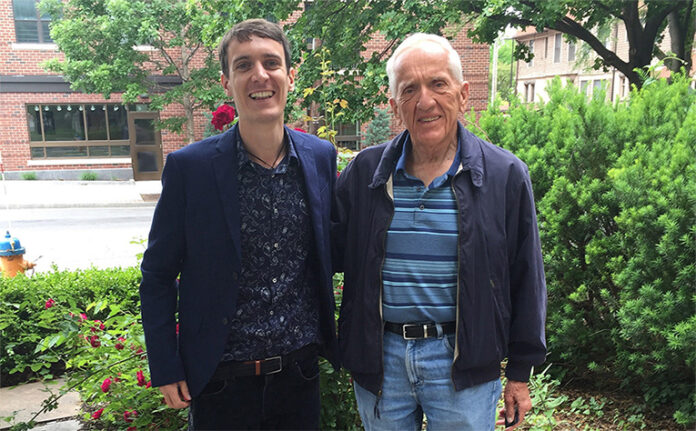Although he’s insistent, Gisborne based whole food advocate Dr Nick Wright, takes a typically Kiwi approach to people who don’t want to hear what he has to say. For him, the problem is simple.
“When people say to me, I’m not interested in quitting smoking or changing my diet, well, that to me is a valid excuse. These things can be tough! They’re stating that currently the costs versus the benefits don’t add up right now.”
Dr Wright is one of a growing group of medical doctors worldwide who are less likely to recommend a pill if you arrive on their doorstep following a heart attack, stroke or a whole bunch of other issues they now class as lifestyle illnesses.
But, despite the evidence he can present, the proposition he puts isn’t always easy for people to stomach.
“You can use all these other excuses but, at the end of the day, you can say the research is not good enough, well that’s not true. Or, it’s too expensive – well, that’s not true, or it’s not tasty, well that’s not true, but then, I just don’t want to do it – well, that’s a pretty good reason. That’s one I’ll accept from patients.”
For him and many other medical professionals now, there is only one answer to the prevention and cure of illnesses that are killing and debilitating thousands of New Zealanders every year – a whole food plant-based diet.
NOT A SHORT TERM FIX
Diet is a term they baulk at because it wrongly implies a short-term fix to a long-term lifestyle issue – our deep-seated and dangerous commitment to the consumption of fat and excessive levels of protein.
Whole food plant-based ‘dieting’ can be used to reduce weight but for medical professionals like Dr Wright, there seems little point because stopping it can only mean a return to unhealthy ways. When asked how this type of eating is being accepted out there, he believes it’s slow but steady progress is being made.
Speaking from his Gisborne surgery (3Rivers Medical) he says, “I think there is slowly growing interest in it.
“It’s a really interesting one because we’re kind of at this crossroad where there is massive growth in obesity and the diseases associated with that, but there aren’t a lot of solutions.
People are naturally trying to seek out solutions, and largely the health system and medical professionals are not addressing those issues in a way that is meaningful. People end up seeking all sorts of strange and nonsense diets and sometimes following some very unhealthy advice.”
But he does sense a change coming because, more and more, people are starting to wonder what is actually happening to them although “Dr Google” still played a big part in their self-diagnosis.
Currently, in Gisborne, he says the intention is to work on more programs with the aim of making what has already been done more sustainable and viable long term.
“One of the big problems with this stuff is that when you talk to practitioners, they say, hey look this is great and they are all very open to it. They say I understand what you are saying, this is effective, and we can do it, but who do I refer to, and what is the pathway for this?
“So, if we have a bit more of a clear pathway for people, then they will take it and for practitioners especially. I think that working within the system then that’s, ultimately, going to be the best long-term solution because all the health funding in New Zealand is already directed that way.”
In the end, he says, tapping into the national health budget would also be the fairest way because at the moment, people are paying out of their own pockets.
“It’s not really fair when we’re all contributing to the tax system, which is contributing to the health system anyway.”
But getting the whole food health message across to the general public isn’t easy, he says, because some major players have a vested interest in making people unhealthy.
SHARING THE FINDINGS
“It’s one thing doing a research study but it’s another thing actually sharing the findings with people.
“If you are trying to make changes, you can’t just say oh here are the research findings, but no one has seen them or heard about them so sharing those with people is important as well.
“That’s a big part of the battle that’s hard to win especially when you are fighting against vested interests with a lot of money that is spending probably hundreds of millions of dollars a year to convince people to eat a whole bunch of junk food – and then we’re trying to get the message out there, but we don’t have any budget at all.”
Generally speaking, however, he says the New Zealand news media had been doing a reasonable job of getting the whole food message across.
“I think the media are doing pretty well. I think in New Zealand, there are probably fewer problems than there are in some other places.”
He says there is interest from the media, “but part of the problem arises because there are so many messages out there that it gets so confusing for the patients and the general public.
“The media isn’t necessarily science trained, and they don’t necessarily have enough time or funds available to look into every story in depth and really get to the bottom of it.
“So, I think, if we’re presenting nice clear science, then that’s a big win and a big step forward. Then media will be interested in that, and the public will be interested in health news.”
The long-term challenge, he says, is to convey that message effectively.






